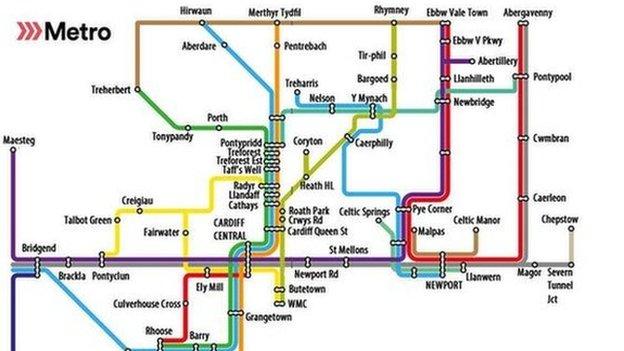£600m South Wales Metro to prevent transport 'chaos'
- Published
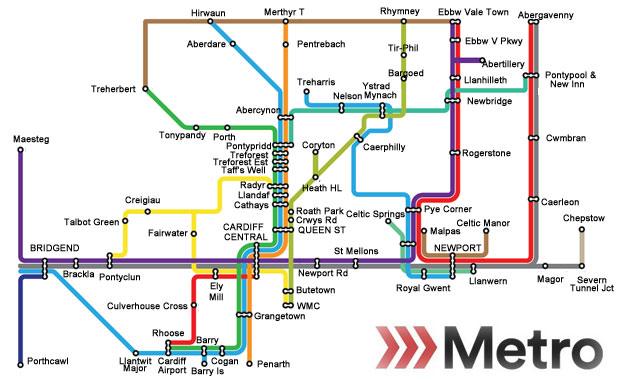
The latest map of how the Metro could look
Up to £600m is to be spent on a new metro for south east Wales within five years, it has been announced.
It is likely to be a mix of light rail, trams, improved trains and faster buses by 2020 in Cardiff and the valleys.
It is in addition to planned rail electrification and will run as a "not-for-dividend" part of the next all-Wales rail franchise from 2018.
The economy minister said it could be "chaos" on roads unless the issue of transport infrastructure is sorted out.
Edwina Hart has tasked rail and business experts to finalise plans before work starts in 2017.
She wants to learn lessons from Transport for London in how it will operate.
Mrs Hart envisages a partnership with private developers but operating for the minimum profit, with money being reinvested in the network to "leave more money to run a vital public service".
Mrs Hart told AMs it would deliver "frequent, reliable and rapid rail services" as well as fast bus services.
But she was also cautious that people should not expect an "all singing and all dancing" Metro by 2020.
"We will have the start of the system for the Metro [for 2020], we'll be modernising lines and doing further work," she said.
"But it's going to take a long time to put in place in terms of its delivery."
Opposition parties welcomed the announcement, but said the metro needed to be well planned and affordable, and called for more details about the route.
Edwina Hart said it was an exciting opportunity
The Welsh government has already committed £77m to a first phase, which includes a new station for Ebbw Vale.
The funding for this second phase - a landmark for the new Cardiff Capital Region - will come from a mix of Welsh and UK government money and EU funding.
Ministers want to spend money on making as big a difference to people's travel times, as quickly as possible.
Mrs Hart said "innovative solutions" were needed and an open mind would be kept on the detail of what it would look like in practice.
Improved trains and coaches were a "red line" but it was important to look at how it could work across south east Wales.
"Can I make it clear this scheme isn't for the benefit of Cardiff, it's for the benefit of the wider city capital region," she told AMs.
"It's important everybody looks at what benefits can be gained, it's up to local authorities to look at what they require in terms of stations. It will be a dark day if it's just for Cardiff - it's about ensuring it goes right across the region."
Mrs Hart said with housing expansions it would be "absolute chaos" on the roads unless the transport infrastructure was sorted out and an integrated system was the way forward.
Driverless pods were suggested to link the city centre and Cardiff Bay in 2002
Eventually, it has been estimated the improvements for the whole region could cost £2bn.
A faster and integrated metro network - stretching across 10 council areas - has been looked at for the last three years.
Various light rail links between Cardiff city centre and Cardiff Bay developments have also been suggested over the last 30 years but have not got off the drawing board.
Meanwhile, cities including Manchester, Sheffield and Nottingham have forged ahead.
David Stevens, chief operating officer at Admiral, is one of the Welsh government's advisers on the project
Chris Gibb, one of the newly-appointed advisers to the project, said the Welsh government had some challenging decisions to make.
"There are lots of choices and the Welsh government is taking an ambitious line on this and wants a great deal from it," said Mr Gibb, a former managing director of Wales and Border Trains and Virgin Trains.
Mr Gibb added: "Everybody wants faster journey times, higher quality services, improved reliability, less overcrowding and don't want to pay more if they can afford it - either through taxes or train fares. There's a balance to strike between what can be delivered and how technology can apply."
He said a tram-train hybrid - with both running on the same type of tracks - could be one of the answers and examples of urban networks such as the one in Lyon, France, need to be looked at.
The £600m will involve £125m promised from the Department of Transport, £150 in European regional development funding.

Cardiff transport history
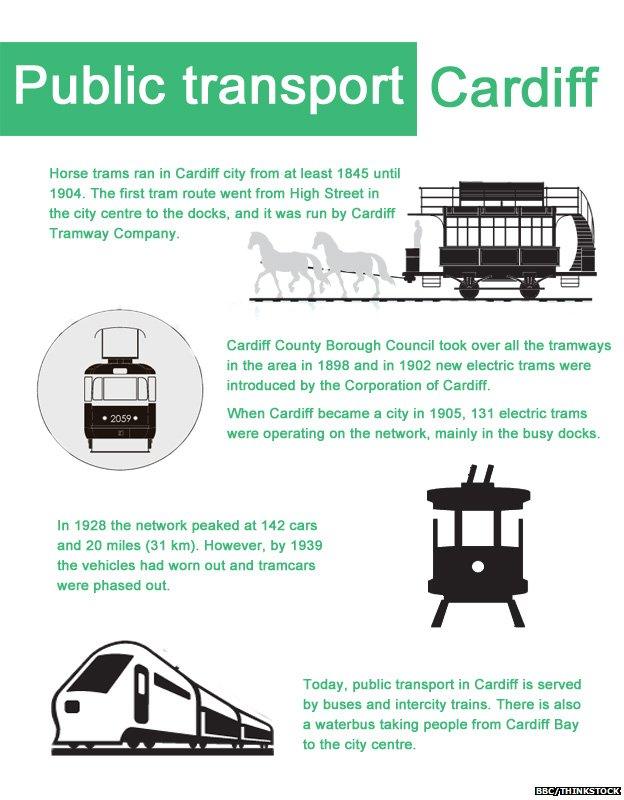

Mr Gibb also said new technologies could be a factor.
"People can see limitations of the current system - you only have to catch a train between Cardiff Queen St and Cardiff Central to realise you're in a queue of trains determined by the signalling system," he said.
"But rail signalling technology is moving on and in other parts of Europe trains can in effect run at slow speed, more or less bumper to bumper, in complete safety. There is technology out there we can use in Wales."
The other two advisers are insurance firm Admiral's chief operating officer David Stevens - who has been a supporter of the metro for years as thousands of his employees commute daily - and Andrew Haines, boss of the Civil Aviation Authority, who has a background in railways.
- Published30 June 2015
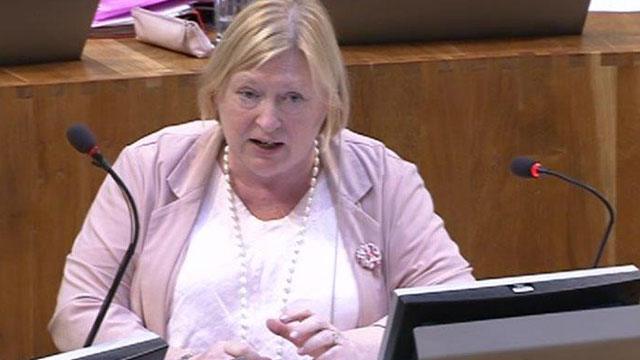
- Published30 June 2015
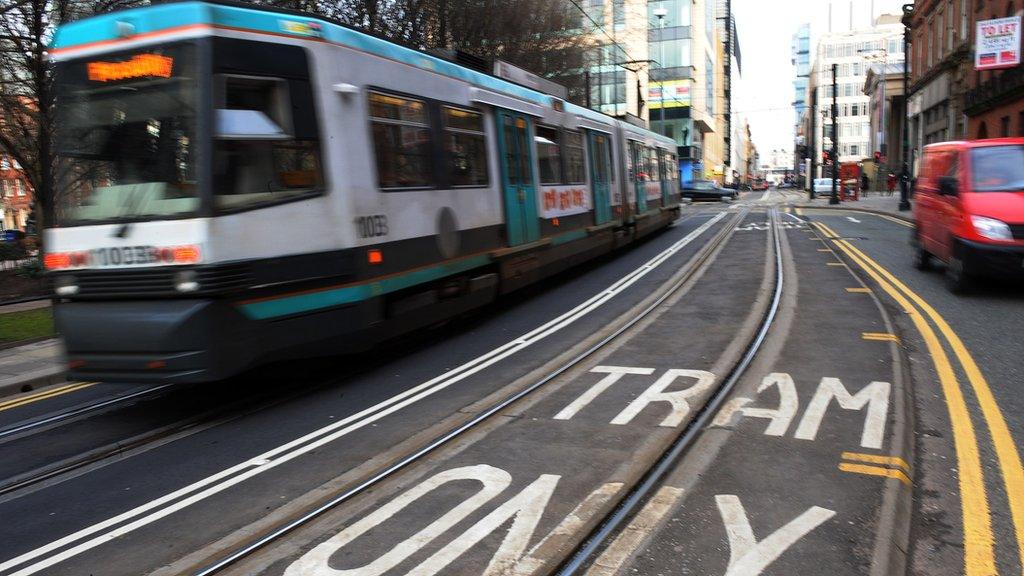
- Published30 June 2015
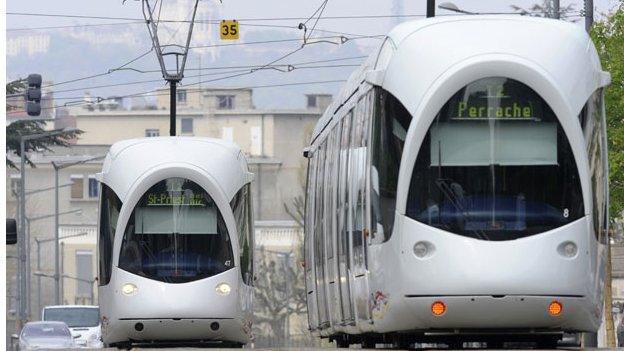
- Published14 March 2015

- Published12 February 2015
